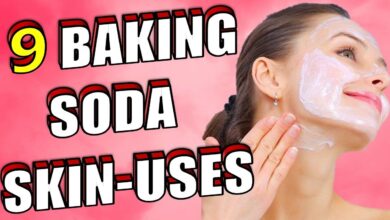To treat gum boils properly and effectively, your dentist may recommend one or a combination of the following treatments:
- Antibiotics – Since a bacterial infection is the cause of gum boils, administering antibiotics is the best way to kill the bacteria. Most of these boils form below the gumline where topical creams may not reach, antibiotics are the best way to treat them.
- Deep Cleaning – Gum disease and tooth decay are some of the common factors behind gum boils. Going for deep cleaning or scaling can remove plaques and heal the swollen gums.
- Drainage– In some cases, your dentist may drain the pus from the boil, relieving the pain and allowing faster healing.
- Surgical Procedures– If a person develops a boil at the root of the teeth (periapical abscess) due to tooth decay, a root canali XA dental procedure to remove the infected pulp and clean the insides of a damaged or infected tooth to save it from further decay. is the way to treat the infection. If the infection has spread to the teeth, your dentist may surgically extract the teeth to prevent the tooth infection from spreading further.
 Quick Tip
Quick Tip
Your dentist may prescribe a dose of Amoxicillin or Metronidazole to treat gum boils. In case you are allergic to Penicillin, they might suggest a prescription for Clindamycin (1).
To Sum It Up
Gum boils are swollen, pus-filled growths on your gum that can cause soreness and pain. Food stuck in your teeth, gum disease, and tooth decay allow the bacteria to build in the gums, resulting in gum boils. Gum boils may be prevented by practicing good dental hygiene and not smoking. However, if you still get gum boils, home remedies, such as washing your saltwater rinse, and brushing with essential oils may help alleviate the symptoms and reduce the risk of periodontal disease. If these home remedies fail to provide relief, you should consult your dentist for further treatment options.
Frequently Asked Questions
Can stress cause gum boils?
Stress may compromise the immune system, rendering it incapable of fighting off infections that lead to gum boils.
What antibiotics treat gum boils?
Amoxicillin, Metronidazole, Azithromycin, Cefixime, and Penicillin are some of the most commonly prescribed antibiotics for the treatment of gum boils.
Can sugar intake cause gum boils?
Sugar intake may increase the incidence of gum diseases as sugar may promote oral bacterial growth.
Can apple cider vinegar get rid of gum boils?
Apple cider vinegar has mild antimicrobial properties which can help facilitate recovery from gum boils. However, it may not be able to completely cure it.
Are gum boils contagious?
No, gum boils are not generally contagious. However, severe infections may lead to a transfer of bacteria through the saliva.
Will gum boils bleed?
Yes, gum boils may bleed if it is severe or punctured.
Learn more about treating an abscessed tooth at home with simple, natural remedies. Watch this video for tips on finding relief from the pain and discomfort of the condition.
Sources
Articles on StyleCraze are backed by verified information from peer-reviewed and academic research papers, reputed organizations, research institutions, and medical associations to ensure accuracy and relevance. Read our editorial policy to learn more.
- Dental abscess: A microbiological review
https://www.ncbi.nlm.nih.gov/labs/pmc/articles/PMC3858730/ - Periodontal Abscess
https://www.ncbi.nlm.nih.gov/books/NBK560625/ - Treponema denticola chymotrypsin-like proteinase may contribute to orodigestive carcinogenesis through immunomodulation
https://idp.nature.com/authorize?response_type=cookie&client_id=grover&redirect_uri=https%3A%2F%2Fwww.nature.com%2Farticles%2Fbjc2017409 - Prevalence of unculturable bacteria in the periapical abscess: A systematic review and meta-analysis
https://journals.plos.org/plosone/article?id=10.1371/journal.pone.0255485#sec005 - Dental Abscess
https://www.ncbi.nlm.nih.gov/books/NBK493149/ - Smoking and Periodontal Disease
https://www.ncbi.nlm.nih.gov/labs/pmc/articles/PMC3633395/ - Gingiva teeth and sea salt
https://www.researchgate.net/publication/12822103_Gingiva_teeth_and_sea_salt - Rinsing with Saline Promotes Human Gingival Fibroblast Wound Healing In Vitro
https://journals.plos.org/plosone/article?id=10.1371/journal.pone.0159843 - The Use of Hydrogen Peroxide for Disinfection and Sterilization Applications
https://onlinelibrary.wiley.com/doi/abs/10.1002/9780470682531.pat0885#:~:text=Hydrogen%20peroxide%20has%20been%20shown - The effects of hydrogen peroxide mouthwashes on the prevention of plaque and gingival inflammation: a systematic review
https://onlinelibrary.wiley.com/doi/abs/10.1111/j.1601-5037.2010.00492.x - Adjunctive antimicrobial chemotherapy based on hydrogen peroxide photolysis for non-surgical treatment of moderate to severe periodontitis: a randomized controlled trial
https://idp.nature.com/authorize?response_type=cookie&client_id=grover&redirect_uri=https%3A%2F%2Fwww.nature.com%2Farticles%2Fs41598-017-12514-0 - Role of curcumin in systemic and oral health: An overview
https://www.ncbi.nlm.nih.gov/labs/pmc/articles/PMC3633300/ - Comparative evaluation of 0.1% turmeric mouthwash with 0.2% chlorhexidine gluconate in prevention of plaque and gingivitis: A clinical and microbiological study
https://www.ncbi.nlm.nih.gov/labs/pmc/articles/PMC3498709/ - Antimicrobial efficacy of five essential oils against oral pathogens: An in vitro study
https://www.ncbi.nlm.nih.gov/labs/pmc/articles/PMC4054083/




